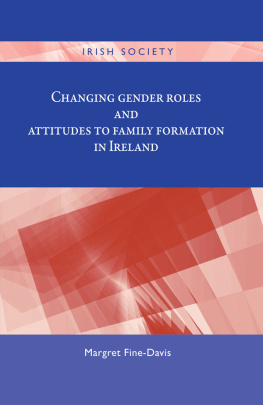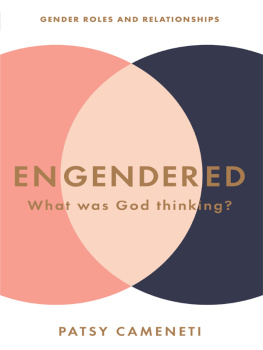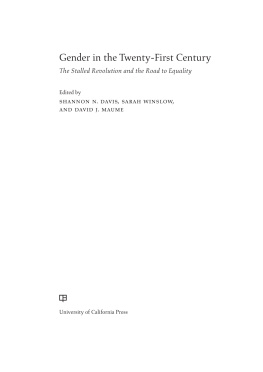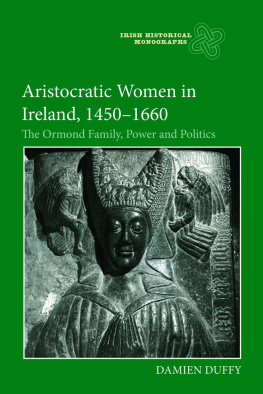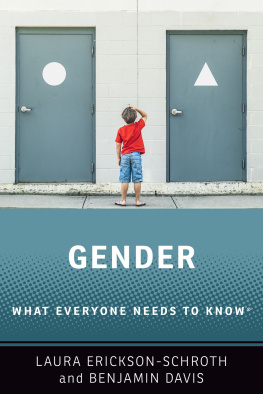CHANGING GENDER ROLES AND ATTITUDES TO FAMILY FORMATION IN IRELAND
IRISH SOCIETY
The Irish Society series provides a critical, interdisciplinary and in-depth analysis of Ireland that reveals the processes and forces shaping social, economic, cultural and political life, and their outcomes for communities and social groups. The books seek to understand the evolution of social, economic and spatial relations from a broad range of perspectives, and explore the challenges facing Irish society in the future given present conditions and policy instruments.
SERIES EDITOR
Rob Kitchin
ALREADY PUBLISHED
Ireland and the Freedom of Information Act Edited by Maura Adshead and Tom Felle
Public private partnerships in Ireland: Failed experiment or the way forward for the state?Rory Hearne
Migrations: Ireland in a global world Edited by Mary Gilmartin and Allen White
The economics of disability: Insights from Irish research Edited by John Cullinan, Sen Lyons and Brian Nolan
The domestic, moral and political economies of post-Celtic tiger Ireland: What rough beast? Kieran Keohane and Carmen Kuhling
Challenging times, challenging administration: The role of public administration in producing social justice in Ireland Chris McInerney
Corporate and white-collar crime in Ireland: A new architecture of regulatory enforcement Joe McGrath
Management and gender in higher education Pat OConnor
Defining events: Power, resistance and identity in twenty-first-century Ireland Edited by Rosie Meade and Fiona Dukelow
CHANGING GENDER ROLES AND ATTITUDES TO FAMILY FORMATION IN IRELAND
Margret Fine-Davis
MANCHESTER UNIVERSITY PRESS
Copyright Margret Fine-Davis 2016
The right of Margret Fine-Davis to be identified as the author of this work has been asserted by her in accordance with the Copyright, Designs and Patents Act 1988.
Published by Manchester University Press
Altrincham Street, Manchester M1 7JA
www.manchesteruniversitypress.co.uk
British Library Cataloguing-in-Publication Data
A catalogue record for this book is available from the British Library
Library of Congress Cataloging-in-Publication Data applied for
ISBN 978 0 719 09696 9 hardback
First published 2016
The publisher has no responsibility for the persistence or accuracy of URLs for any external or third-party internet websites referred to in this book, and does not guarantee that any content on such websites is, or will remain, accurate or appropriate.
Typeset by Out of House Publishing
Contents
Over the past 20 years, Ireland has undergone enormous social, cultural and economic change. From a poor, peripheral country on the edge of Europe with a conservative culture dominated by tradition and the Church, Ireland transformed into a global, cosmopolitan country with a dynamic economy. At the heart of the processes of change was a new kind of political economic model of development that ushered in the so-called Celtic Tiger years, accompanied by renewed optimism in the wake of the ceasefires in Northern Ireland and the peace dividend of the Good Friday Agreement. As Ireland emerged from decades of economic stagnation and The Troubles came to a peaceful end, the island became the focus of attention for countries seeking to emulate its economic and political miracles. Every other country, it seemed, wanted to be the next Tiger, modelled on Irelands successes. And then came the financial collapse of 2008, the bursting of the property bubble, bank bailouts, austerity plans, rising unemployment and a return to emigration. From being the paradigm case of successful economic transformation, Ireland has become an internationally important case study of what happens when an economic model goes disastrously wrong.
The Irish Society series provides a critical, interdisciplinary and in-depth analysis of Ireland that reveals the processes and forces shaping social, economic, cultural and political life, and their outcomes for communities and social groups. The books seek to understand the evolution of social, economic and spatial relations from a broad range of perspectives and explore the challenges facing Irish society in the future given present conditions and policy instruments. The series examines all aspects of Irish society including, but not limited to: social exclusion, identity, health, welfare, life cycle, family life and structures, labour and work cultures, spatial and sectoral economy, local and regional development, politics and the political system, government and governance, environment, migration and spatial planning. The series is supported by the Irish Social Sciences Platform (ISSP), an all-island platform of integrated social-science research and graduate education focusing on the social, cultural and economic transformations shaping Ireland in the twenty-first century. Funded by the Programme for Research in Third-Level Institutions, the ISSP brings together leading social-science academics from all of Irelands universities and other third-level institutions.
Given the marked changes in Irelands fortunes over the past two decades, it is important that rigorous scholarship is applied to understand the forces at work, how they have affected different people and places in uneven and unequal ways and what needs to happen to create a fairer and prosperous society. The Irish Society series provides such scholarship.
Rob Kitchin
I would like to express my appreciation to the Family Support Agency for its generous support of the research presented here. In particular, I am grateful to Aideen Mooney, Head of Research for most of the duration of the study, for her contribution to the development of the research and encouragement throughout. I also wish to thank her successor, Brian OByrne, who ably steered the project to completion. I am grateful to the Board of the Agency and its Chair, Michael OKennedy, and to Pat Bennett, CEO, for their interest in and support of the research from conception to completion. The views expressed in the book are my own and do not necessarily reflect those of the Family Support Agency.
The Steering Committee of the study included Prof James Williams, Economic and Social Research Institute; Dr Stephanie OKeeffe, National Director, Health and Well-being, Health Services Executive (HSE); Ann-Marie OConnor, Department of Social Protection; and Deirdre Bodkin, Department of Justice, Equality and Defence. I am most grateful to them for generously giving of their time and expertise to the study, in particular to the design of the questionnaire. I wish especially to thank Prof Williams for his advice on sampling, design and analysis, and would like to thank him and Dr OKeeffe, as well as the anonymous reviewers, for their most useful comments on earlier drafts of research reports, which formed the basis of this book.
The fieldwork and data analyses were carried out by Behaviour and Attitudes. I especially wish to thank Ian McShane, Managing Director, and Luke Reaper, Director, as well as Dean Howlin, who expertly and efficiently executed all of the data analyses, and Louise McGrillen who oversaw the fieldwork throughout the country. We are most grateful to Aidan Punch and Marie Hogarty of the Central Statistics Office for providing advice and special runs on the Census which assisted us in the design and selection of the sample. Appreciation is also expressed to the 1,404 respondents who participated in the main study, as well as the 48 respondents who took part in the qualitative study. Without their cooperation the study would not have been possible. Their views represent the views of many others like themselves and thus their inputs were invaluable.


